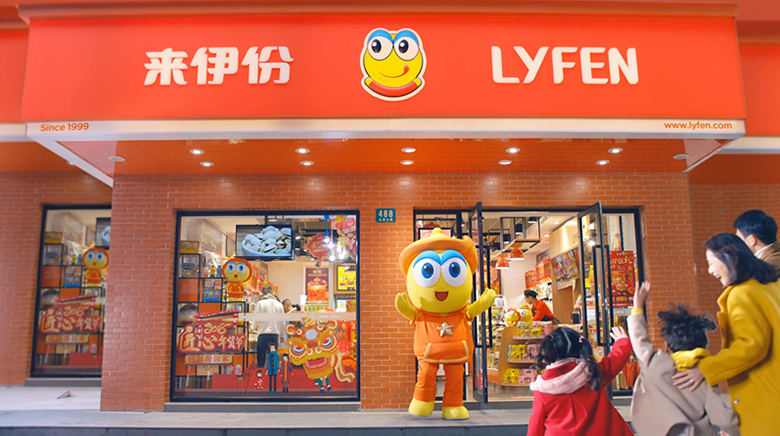Huawei SAP HANA Helps LaiYiFen Ensure Precise Supply
This site uses cookies. By continuing to browse the site you are agreeing to our use of cookies. Read our privacy policy>
![]()
Enterprise products, solutions & services
Founded in 1999, Shanghai LaiYiFen Co., Ltd. (LYFEN) is a China-based company primarily engaged in the management and operation of snack food chain stores. It was listed on the Shanghai Stock Exchange with the securities code 603777 on October 12, 2016, becoming the first snack enterprise listed in China. LaiYiFen owns more than 2,500 stores in 16 provinces or municipalities in China and has more than 250 suppliers across more than 20 countries in five continents worldwide. As of today, LaiYiFen has more than 23 million members and has served more than 500 million consumers.

By integrating the small and scattered leisure food industry into a modern, intensive, and information-based platform, LaiYiFen has created a new business model for the leisure food chain industry in China. It built a full-channel retail system consisting of offline entity stores, B2C online retailers, and mobile shopping Apps.

Inefficient existing ERP system affects goods replenishment decision making
The company’s original ERP system could not live up to the ever-growing business scale. For example, the system needed more than 15 minutes to prepare a monthly member quantity report and more than 10 minutes to prepare a monthly shopping time analysis report. This greatly affected the working efficiency of operations personnel, and even affected the decision making for store goods replenishment. Every day, the system needed to collect the operation statistics of all stores in a region, and analyze and generate multiple data reports to help decision makers determine the types and quantity of goods to be replenished for each store on the current day. These reports needed to be complete before 7:30 a.m. every day so that goods could be replenished before business hours. However, the original ERP system could only manage to complete the reports by 8:00 a.m., making accurate decision making difficult. As a result, some best-sellers would be missing in some stores, affecting sales.
Required a cost-effective, easy-to-implement system expansion solution
The original ERP system ran on traditional UNIX servers, and used a traditional read/write database, which makes difficulty in expansion. UNIX servers are not only expensive to buy, but also require a considerable, costly amount of annual hardware maintenance. In addition, due to their enclosed architecture, UNIX servers required professional IT personnel to maintain software and hardware, which increased O&M costs. The company wanted a new system to bring maximum ROI and support easy expansion that would have minimum impact on existing services. Therefore, the company wanted a brand-new system, instead of a UNIX server-based system.
Huawei SAP HANA Appliance Solution supports scaled business development
After learning about the IT infrastructure plight of LaiYiFen, Huawei proposed the SAP HANA appliance cluster solution. Huawei deployed the SAP Business Warehouse on HANA (BWoH) on three Huawei 2 TB server nodes to form a 2+1 cluster for the customer. After a demonstration, testing, and verification, LaiYiFen strongly approved Huawei’s solution. SAP HANA is a new type of database based on in-memory computing. It eliminates drive I/O read/write performance bottlenecks and significantly improves database performance. It also provides a five times higher data compression ratio (for example, 18 TB data can be compressed into 2.5 TB), saving a great amount of storage capacity. The SAP HANA appliance can also use open architecture that delivers the same performance with less software and hardware investments than the original UNIX architecture.
In October 2017, the new system officially went live, and all reports required by the customer were generated within seconds. Report generation performance was improved by 6 times to 80 times, depending on the report types. The monthly shopping time analysis report can be generated within 3 seconds, which is 200 times faster than the previous 10 minutes. The new system completes goods replenishment analysis for each store by 03:00 a.m., enabling precise decision making for daily goods replenishment and timely goods warehousing and logistics.
Performance improvement also enhances the capability of the customer’s service system to defend against fault risks. The original service system took about seven days to complete a full backup, which might result in data lost. Since the original system was upgraded to the new Huawei SAP HANA appliance system, a full backup takes less than two hours. The customer can perform a full backup each day during off-peak hours, which has barely any impact on services. This greatly improves the system’s ability to defend against data loss.